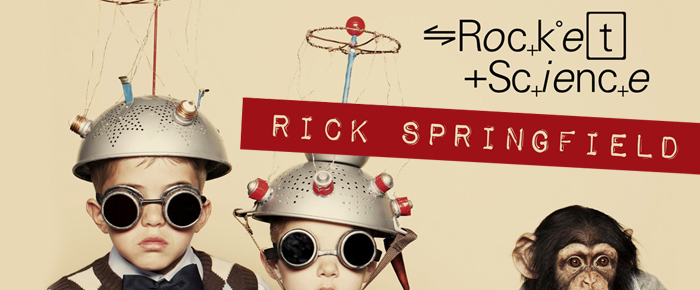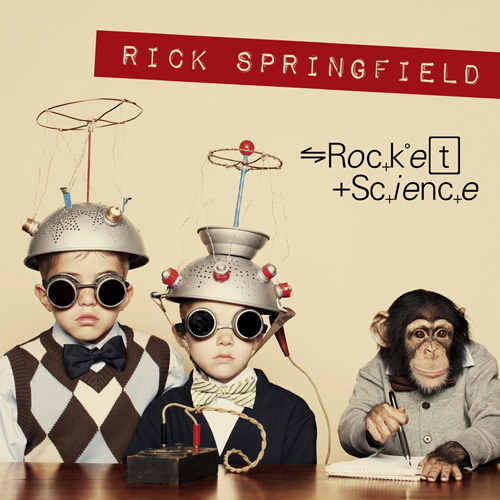
By Eleni P. Austin
Anyone who starts off a career as a Teen Idol is almost always guaranteed a brief burst of world dominion followed by a lifetime of obsolescence. Even with the most gifted teenage musician, for their fans, talent takes a backseat to good looks. For every Michael Jackson or Justin Timberlake who transcends the teen idol label, there are hundreds of forgotten artists still trying to gain a foothold in the Rock & Roll firmament.
When David Cassidy signed on to play the lead in the “Partridge Family,” he had been a struggling actor-musician whose tastes leaned toward Jimi Hendrix and Cream. He won fame and fortune playing treacly hits like “I Think I Love You” and spent the next 40 years trying live that down. (The crushed velvet pantsuits and puka shell necklaces didn’t enhance his credibility), but he managed to carve out a career in show business.
Donny Osmond spent most of the ‘70s on top of the charts, either solo, with his brothers or his sister Marie. He parlayed his clean-cut charm into co-starring with Marie on theirown variety show. But the teenyboppers that squealed and rocked the bleachers when the Osmonds headlined Angel Stadium, were now jaded teens rolling their eyes at the cornball antics of the “Donny & Marie” show.
By the late ‘80s, Donny released a very credible single, “Soldier Of Love” that sandwiched nicely on the radio between hits by the Pet Shop Boys and George Michael. It hit # 2 on the charts, but that’s because it was marketed as a “mystery single.” Donny’s identity wasn’t revealed until the song found solid footing on the charts.
Rick Springfield went through similar trials and tribulations trying to eradicate his tawdry Teen Idol past. Most people became familiar with him in 1981, when he played a doctor on the most popular soap opera on the planet, “General Hospital.” But he first made a splash in the early ‘70s on the pages of Flip, Spec, 16 and Tiger Beat.
Rick, (ne’ Richard Lewis Springthorpe), was born in Australia in 1949. His father was a career military man and the family moved a lot. To combat loneliness, Rick sought solace in books and music, learning guitar at 13. A year later he saw the Beatles and had an epiphany; music would be his career. He cycled through a series of bands before finding success in Zoot.
The band had some minor hits in Australia before breaking up. Rick recorded his solo debut, Beginnings, in London, before relocating to the U.S. He released his first single, “Speak To The Sky” in 1972. The track peaked at #14 on the Billboard Top 100, and soon Rick’s pretty/handsome looks found a home in teen magazines alongside other “fave raves” like David, Donny, Michael Jackson and the Brady Bunch Boys.
Rick actually starred as himself (albeit in animated form), in a Saturday morning cartoon called “Mission Magic,” writing and performing a song for each episode. He released more albums in the ‘70s, but neither teeny-boppers or adults paid attention. Luckily by 1981 he was playing Dr. Noah Drake on “General Hospital.”
He recorded his fifth album, Working Class Dog at (the now infamous) Sound City. Ironically, when it was released, naysayers assumed he was a TV star trying to jump on the music bandwagon. In reality, that album was a cogent Power-Pop gem, boosted by his television success, but sustained by excellent songs and sharp production. The first single, “Jessie’s Girl” went to #1 on the charts and even won a Grammy for Best Rock Vocal Performance.
The rest of his ‘80s output, Success Hasn’t Spoiled Me Yet, Living In Oz, Hard To Hold, Beautiful Feelings, Tao and Rock Of Life never scaled the artistic heights of …Dog, but they were all wildly successful. Although he was offered a part in “The Right Stuff,” Rick chose to star in the movie “Hard To Hold.” The plot was sort of a mash up of “A Star Is Born” and “An Officer And A Gentleman.” Seriously, at the end of the movie, his spoiled Rock star character joins the Navy.
Through the ‘90s, Rick cut back on touring and performing, preferring to concentrate on family. He occasionally acted in television and on Broadway, but didn’t record a new album until Karma, arrived in 1999. Luckily, his fans remained steadfast, and were rewarded in the new millennium, when he began touring and recording more frequently.
Not only did he release albums of new, original material like “shock/denial/anger/acceptance,” Venus In Overdrive and Songs For The End Of The World, but he also recorded albums of Christmas songs, Kids music and his favorite songs by other artists. Rick’s profile was raised considerably in 2013, with his participation in the “Sound City” documentary.
Dave Grohl’s film, celebrated the hole-in-the-wall Van Nuys studio that spawned countless hit records from 1969 until it closed in 2011. The doc was funny and heartfelt throughout, it included testimonies and anecdotes from superstars like Stevie Nicks, Tom Petty and Neil Young. But it was Rick’s sincere, and almost tearful confession, that new management convinced him to abandon Sound City owner (and his mentor), Joe Gottfried, which added a moment of gravitas to the proceedings.
 By 2015, Rick Springfield was appearing alongside Meryl Streep in a lead role for the Jonathan Demme movie, “Ricki And The Flash.” Ironically, he played Meryl’s love interest and guitarist in her bar band. During filming, workaholic Rick spent his off hours with his longtime collaborator, bassist Matt Bissonette. The result is his 19th solo album, Rocket Science.
By 2015, Rick Springfield was appearing alongside Meryl Streep in a lead role for the Jonathan Demme movie, “Ricki And The Flash.” Ironically, he played Meryl’s love interest and guitarist in her bar band. During filming, workaholic Rick spent his off hours with his longtime collaborator, bassist Matt Bissonette. The result is his 19th solo album, Rocket Science.
The record kicks into gear with “Light This Party Up.” The opening notes are muscular guitar riffs accented by urgent cowbell, (everyone can use a little more cowbell). But what follows is a tone-deaf, generic rocker that insists “It’s time to cowboy-up.” Ick.
Unfortunately, the opening number is indicative of the problems that plague this album. On the surface, the songs are pleasant enough, but dig a little deeper, and there’s no there there.
Take, for instance “Down,” a track co-written by Jay DeMarcus from the superstar Country act, Rascal Flats. The melody is earnest and obliging, powered by jangly guitars, sprightly keys and a mid-tempo rhythm. But lyrics like “Here nobody leaves without a scar, the deepest cuts will make you who are” feel less like an observation and more like a collection of affirmations.
Both “Let Me In” and “That One” straddle the line between bland ‘70s AOR and sterile C&W. The former is a milquetoast lament to a faltering relationship. The tune is swathed in layers of instrumentation, banjo, pedal steel and a guitar solo that Smooth Jazz fans might find “tasty.”
On the latter, the lyrics paint a vivid picture of a duplicitous jezebel. Sputtering synths collide with more banjo, rippling guitar riffs and an anvil chorus that recalls the faux Western excess of Bon Jovi’s “Wanted, Dead Or Alive.”
A few songs begin promisingly. “Miss Mayhem” starts off a swampy, stompy, groover, but tart banjo notes are quickly eclipsed by a bludgeoning chorus. It feels as though two songs were stitched together by a drunken Dr. Frankenstein.
“(I Wish I Had A) Concrete Heart” takes a killer hook and then overpowers it with lush, overdubbed vocals, synthesized strings and sugary guitars. But the good news is “Found” is actually a heartfelt, Countrified charmer, played in ¾ Waltz time.
The worst songs here take half-baked ideas and wrap them in over-cooked arrangements. “Pay It Forward,” has nothing to do with the shite Kevin Spacey film, but it’s still pretty abysmal. It really works at being an urgent anthem espousing a “random act of kindness” ethos. The instrumentation is awash in guitars, banjos, mandolins, pedal steel and fiddles. Rick’s vocals are buttressed by a lot of “Whoa-ho-ho” backing vocals, but to paraphrase Shakespeare, it’s a lot of sound and fury, signifying nothing.
Both “Crowded Solitude” and “All Hands On Deck” offer a slick blend of Celtic blarney and cornpone Country. On “Crowded..,” sawing fiddles crest over a “When Johnny Comes Marching Home” martial cadence. Paradoxically, as the lyrics bemoan the lack of “quiet interludes in this crowded solitude,” the meaning is buried in an avalanche of gimmicky dross.
“All Hands…” is a jingoistic battle cry, a well-meaning ode to his adopted homeland, America. Unfortunately, the lyrics are full of heavy-handed symbolism like “From the mountains to the fertile plains, with the pulse of lightning in our veins/Hallelujah strike the band in hopes we will survive this shipwreck, call all hands on deck.”
The closing track, “Earth To Angel” bares a passing resemblance to Tom Cochrane’s driving, early ‘90s hit “Life Is a Highway.” (Coincidently covered by Rascal Flats about 10 years ago). The lyrics attempt some uplift; “In this world of frustration you need affirmation, love needs no translation,” but the whole song feels contrived.
The most frustrating aspect of this album is that buried beneath the paint-by-numbers arrangements and surfeit of instrumentation are good songs. Had they been presented in a stripped-down format, just drums, bass, guitar and vocals, the true melodicism might have had a chance to shine through.
Rick Springfield will most likely bounce back from this career hiccup. The self-deprecating liner notes that he wrote for the album, display a knowing sense of humor. Thankfully, he didn’t go full-frontal Hootie becoming one of those desperate Rock stars that makes a Country record.
As it is, the songs on Rocket Science sound like the music you hear at the dentist’s office while you’re waiting for a tooth to get numb. Facile, over-eager and underwhelming. It’s pleasant enough, until the novacaine wears off.











































